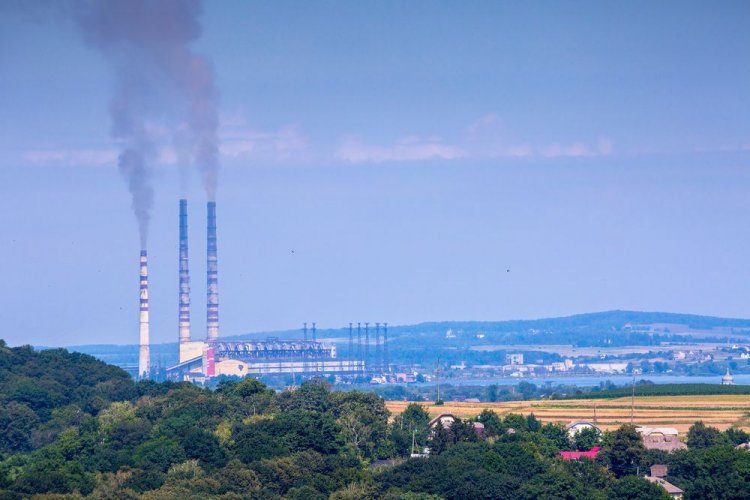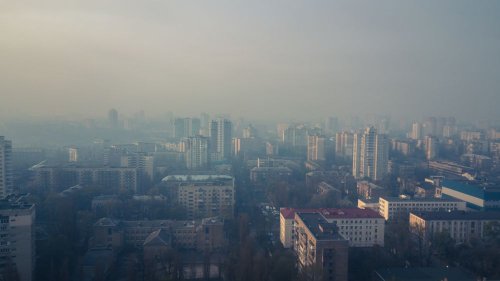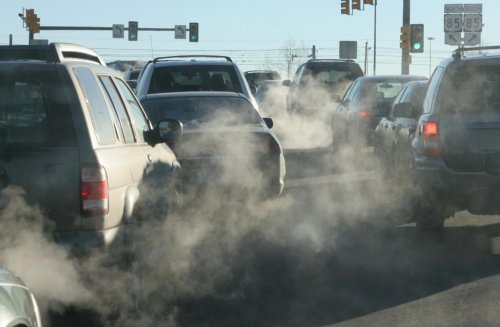The European Business Association (EBA) called on MPs to finalize draft law No. 6477 "On the National register of emissions and transfer of pollutants" and to maintain Ukraine's course towards European integration, improvement of the business climate and deregulation for the period of war and post-war reconstruction.
The document contains provisions that are inconsistent with the requirements of international and European approaches and may significantly affect the investment attractiveness of Ukraine and its further economic development. reports EBA.
The draft law is aimed at implementing the provisions of EU Regulation No. 166/2006 on the establishment of the European register of emissions and transfers of pollutants, as well as the protocol on registers of emissions and transfers of pollutants. The document should create prerequisites for launching an open unified electronic system of access to information on the state of the environment.
The EBA supports the need to create such a Register and repeatedly addressed the Eco Committee with its comments on the specifics of the functioning of the Law.
"The business community thanks you for taking into account the proposal to harmonize the terms of submission of reports by operators with the norms of current legislation, for example, on monitoring, reporting and verification of greenhouse gas emissions in terms of extending the deadline for submission of reports until March 31 of the year following the reporting year," the message says.
The Ecocommittee approved the draft law for the second reading in the Verkhovna Rada of Ukraine. During the week of September 6-10, the document is planned to be submitted to parliamentarians for a vote.
According to the EBA, the following provisions need to be revised:
- The duty of state bodies to submit to the register information on mobile sources of emissions (vehicles, the movement of which is accompanied by emissions).
Currently, Ukraine does not have a single methodology for determining emissions for transport. Therefore, such a proposal is premature and does not agree with the current procedure for conducting statistical reporting of emissions. Clause 7 of Article 7 of the Protocol and Art. 8 of the Regulation of the European Parliament and the Council (EC) No. 166/2006, which stipulates the requirement to enter in the register only those data that are actually collected by state authorities and can practically be entered in the Register.
"Given the state's desire to involve business in the state monitoring system, there are fears that, as a result, the collection of information on emissions from mobile sources for the registry may be transferred to the shoulders of enterprises," the report said.
- The introduction of a preliminary assessment of data quality, the procedure for providing additional information, the failure of the operator to respond to the request within the specified time or the provision of an incomplete response as a basis for refusing to accept the operator's report and the implementation by the controlling body of an unscheduled measure of state supervision (control) in the field of registration of emissions and transfer of pollutants, introduced by Article 20 of draft law No. 6477, are generally absent both in the Protocol and in the EU Regulation.
In addition, these provisions are written in general phrases, which can lead to different interpretations by regulatory bodies and business representatives.
So in the draft law:
- it is not defined what exactly is meant by additional information and how the completeness of the operator's response to the request of the authorized body will be determined, although a clear list of data that can be requested from the enterprise is defined in the EU Protocol and Regulation;
- the proposed list of grounds for carrying out an unscheduled inspection may overlap with planned control measures, and therefore should be a component of them;
- the presence of a formal possibility of refusal by the authorized body to carry out a registration action (information about emissions submitted by the operator) is contrary to the general course of business deregulation and the principles of peopleless. In particular, the last step in this direction, related to the cancellation of the registration of the inventory report for the issuance of a permit for emissions of polluting substances.
Coordinator of the Industrial Ecology and Sustainable Development Committee of the European Business Association Olga Boyko noted that, according to the Association's research, the lowest index of business investment attractiveness has been observed in Ukraine since 2013. In addition to war, the main reason for this trend is corruption and a weak judicial system.
However, 91% of the companies that participated in the survey plan to continue working on the Ukrainian market, and 55% are going to invest in Ukraine even in wartime.
"The joint task of the state and business is to do everything possible to improve the mood of investors, in particular in terms of the ease of doing business. Draft law No. 6477, which is also European integration, should implement exclusively the requirements of the EU regulation and not contain unnecessary superstructures that increase state interference in business activities. We simply cannot afford it in wartime," she emphasized.
Earlier, EcoPolitic wrote, that, on July 8, the Verkhovna Rada of Ukraine approved in the first reading government draft law No. 6477 "On the National register of emissions and transfer of pollutants".
As EcoPolitic previously reported, the EBA criticized draft law No. 7327 on the state environmental monitoring system for the alleged transfer of responsibilities for the implementation of state environmental monitoring to business.





